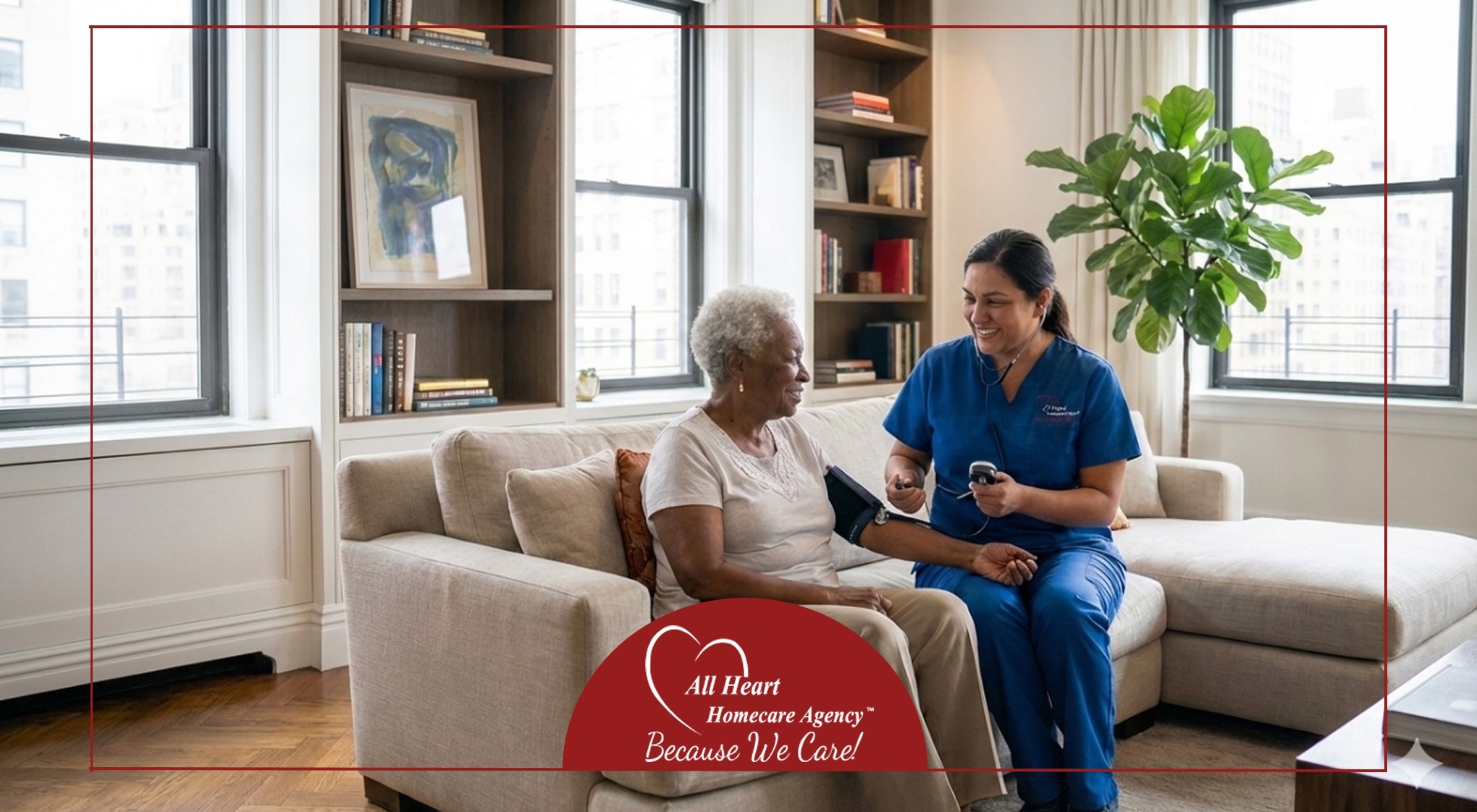How can you create a safe and supportive home environment for someone with dementia?
Creating a supportive home environment for someone with dementia starts with making daily life feel calmer, safer, and more familiar. Simple changes, like reducing clutter, improving lighting, labeling drawers or rooms, and keeping a consistent routine, can help lower confusion and anxiety. Just as important is the emotional environment: speaking patiently, maintaining familiar habits, and surrounding your loved one with meaningful objects and memories. A well-adapted home doesn’t just improve safety; it helps preserve dignity, comfort, and a sense of belonging as dementia progresses.
Caring for a loved one with dementia can be a deeply emotional and challenging experience. From adjusting to changing needs to ensuring their safety and comfort, the role of a dementia caregiver requires constant learning and adaptation. It’s a journey of love, patience, and resilience.
One of the most impactful ways you can enhance the quality of life for someone with dementia is by creating a supportive home environment. A home that is safe, calm, and nurturing can help reduce confusion, lower anxiety, and promote a sense of well-being.
This guide provides practical dementia caregiver tips to help you create such an environment while also addressing safety concerns, effective communication, and caregiver well-being.
Ensuring Home Safety
Safety is crucial when caring for someone with dementia. Every day, household items and layouts can become potential hazards. Here’s how you can make your home safer and more accessible.
1. Reduce Fall Risks
- Clear Pathways: Remove clutter and ensure that walkways are free of obstacles.
- Secure Rugs: Use non-slip pads or remove rugs entirely to prevent tripping.
- Good Lighting: Proper lighting reduces the risk of falls and helps individuals orient themselves.
- Install Handrails: Place handrails in stairways and hallways for added support.
2. Prevent Wandering
Wandering is common in people with dementia and can be dangerous.
- Door and Window Alarms: Install alarms or chimes to alert you if your loved one tries to leave.
- Locks: Place locks out of reach or use simple safety mechanisms. Always ensure there are safe exits in case of emergencies.
- ID Bracelets: Provide them with a wearable ID in case they wander outside your home.
3. Kitchen Safety
- Lock Away Sharp Items: Store knives and other sharp objects in secure drawers.
- Stove Safety: Use stove lock devices or remove knobs to prevent accidental use.
- Secure Chemicals: Keep cleaning agents and hazardous materials in locked cabinets.
4. Bathroom Safety
- Install Grab Bars: Place grab bars near the toilet and in the bathtub or shower.
- Use Non-Slip Mats: Prevent slips with non-slip mats in the shower and on the floor.
- Shower Chair: A sturdy shower chair can provide stability during bathing.
- Control Water Temperature: Set the thermostat to prevent scalds; keep water lukewarm.
5. Medication Management
- Secure Storage: Store medications in a safe, locked space.
- Reminders: Use alarms or medication management tools to ensure doses are taken correctly.
Effective Communication Strategies
Caring for someone with dementia requires adapting your communication style to help build understanding and connection.
1. Approach Calmly
When speaking with your loved one, approach them with a gentle tone and a calming touch if appropriate. Speak slowly and clearly to avoid overwhelming them.
2. Simplify Language
Use short, simple sentences. Give one clear instruction or ask one straightforward question at a time.
3. Use Non-Verbal Cues
Gestures, facial expressions, and pointing can help convey messages when words are not enough.
4. Listen Actively
Even if your loved one’s words are confused, listen attentively and validate their emotions. A simple, “I understand how you feel,” can go a long way.
5. Avoid Arguing or Correcting
If they are confused or express inaccurate memories, resist the urge to correct them. Instead, gently redirect the conversation to something pleasant.
6. Reminisce
Use photos, familiar music, or keepsakes to stimulate positive memories and foster connection.
Managing Challenging Behaviors
Changes in behavior are common in dementia, and understanding why they occur is key to managing them.
1. Identify Triggers
Look for patterns that may be causing distress, such as pain, hunger, or boredom.
2. Address Underlying Needs
If they are upset, check for signs of discomfort or unmet needs, like needing the restroom or being too hot or cold.
3. Use Redirection and Distraction
Guide their attention to a favorite activity, calming music, or a comforting object.
4. Maintain Calmness
Respond to difficult behaviors such as agitation or aggression with patience. Never take these behaviors personally.
5. Create a Soothing Environment
Reduce noise, bright lights, or clutter that may cause overstimulation.
Establishing Routines and Meaningful Activities
A structured and engaging daily routine can bring immense comfort to someone with dementia.
1. Define a Simple Routine
Consistency reduces anxiety. Schedule meals, activities, and rest at the same times every day.
2. Plan Engaging Activities
Tailor activities to your loved one’s personal interests and abilities. Ideas include:
- Listening to familiar music
- Simple puzzles or games
- Gentle walks outside
- Helping with light household chores like folding towels
3. Focus on Enjoyment Over Perfection
The goal of activities is enjoyment, not achieving perfection. Celebrate small successes and cherish shared moments.
Caring for the Caregiver
Caregiving is rewarding, but it’s also emotionally and physically demanding. To provide the best care, caregivers must care for themselves too.
1. Acknowledge Caregiver Stress
It’s normal to feel overwhelmed. Recognize and address these feelings rather than ignoring them.
2. Seek Support
Join caregiver support groups to connect with others who understand your experiences. Don’t hesitate to share your challenges with trusted friends or family. You can always hire a specialized caregiver to help you and your loved one. This way, you can team up for better care.
3. Take Breaks
You don’t have to do it alone. Respite care services, like those offered by All Heart Homecare, allow you to take the time you need to recharge.
4. Maintain Your Own Health
- Prioritize regular exercise to relieve stress.
- Eat balanced meals to fuel your energy.
- Get enough sleep to keep your mind and body in shape.
Building a Supportive Home Environment
Creating a calm, supportive, and safe environment can transform life for both individuals with dementia and their caregivers. By focusing on home safety, effective communication, and meaningful routines, you’ll promote a greater sense of well-being for your loved one.
And remember, you’re not alone in this journey. Compassion, coupled with practical strategies, goes a long way in navigating the challenges of dementia care.
For additional support and specialized services tailored to dementia care, contact All Heart Homecare today. Our dedicated team is here to provide the assistance and compassion that you and your loved one deserve.











